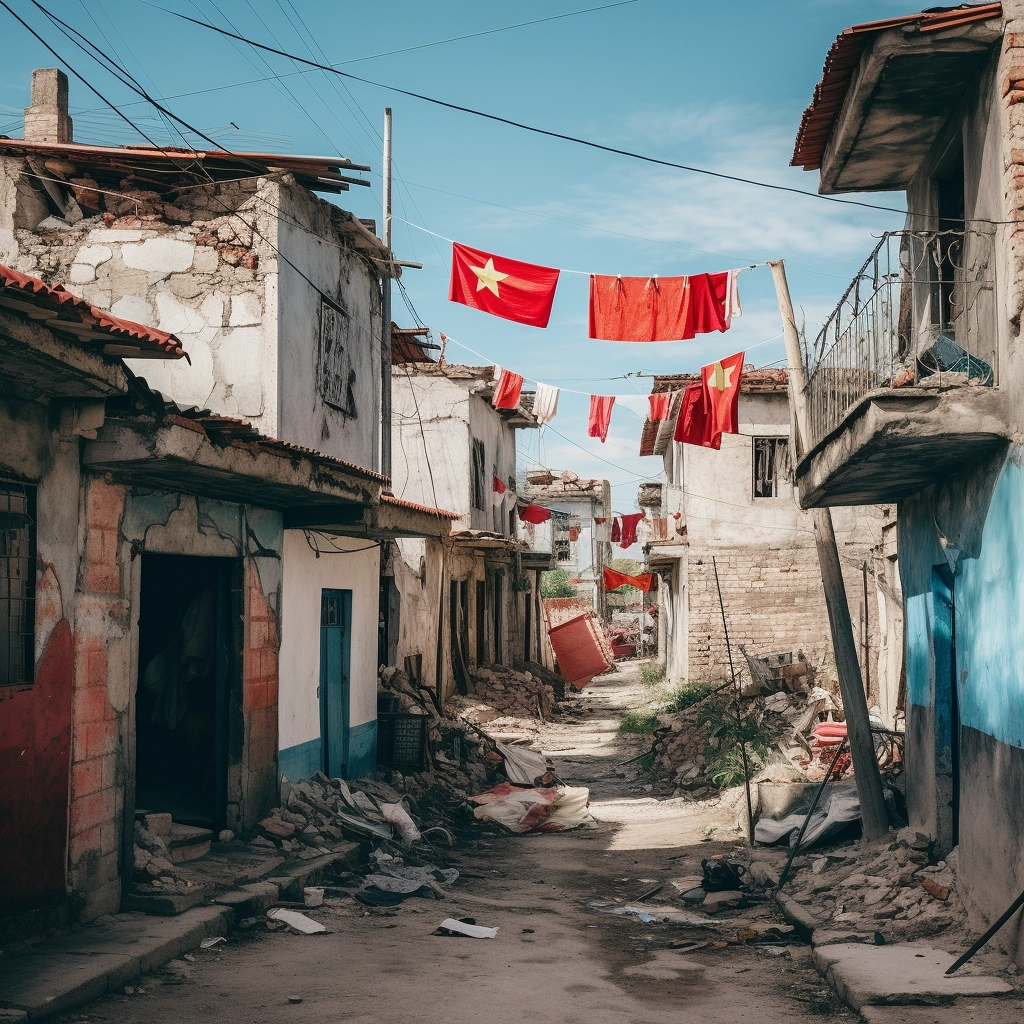For the majority of human history, nearly the entire global population lived in extreme poverty, with incomes equivalent to less than $1.00 per person per day. This poverty persisted from the dawn of civilization until roughly the 19th century.
One might assume that humans must have mentally adapted to this circumstance, having lived in such poverty for thousands of years. This adaptation did not entail halting the development of civilization; rather, it led to the establishment of calming, determining, and organizing mental mechanisms that must have been set by our own psyche to cope with living in such a prolonged state of poverty.
This psychic adaptation likely persists, potentially resulting in many people not being greatly concerned about reducing their economic capacity and transitioning to a state of poverty similar to that experienced by humanity in the past. This is because they may perceive, consciously or unconsciously, the existence of this adaptation in their own minds.
This phenomenon leads me to ponder why people who favor socialist policies, while understanding they may lead to collective poverty, don’t feel significant concern. It’s possible that, due to their perception of adapting to poverty, they don’t fear the consequences of living in a socialist system. They might even view it as a return to the familiar.

It is worth noting an underlying psychological infantilism, a typical characteristic of many leftists, in this case, “not letting go of a previous evolutionary state of mind.”
It is essential to clarify an advantage these individuals seek by striving to live in a socialist system, even if they are clear that it will likely result in an economically worse situation than living in a capitalist system. I refer to reducing the debilitating feeling of having to experience the negative emotions caused by immense envy when witnessing others in better conditions.
They would prefer an egalitarian state of poverty over living in better economic conditions personally but observing economic inequality. In this case, poverty, not inequality, is what hinders having a good quality of life, yet they find poverty preferable to avoid facing their envy.
Un socialista es alguien que pudiendo ser libre prefiere ser esclavo ya que no soporta el brillo que podrían tener otros seres humanos.
— Javier Milei (@JMilei) May 25, 2017
Here, we can observe another instance of psychological infantilism: an inability to accept reality. We are not all equal in various respects. It is, in fact, contrary to our nature.
Returning to the point of humanity’s initial poverty, what eradicated it was the advent of large-scale production and trade in a free-market economy. It was during the heyday of capitalism and the industrial revolution in the 19th century that the creation of massive widespread wealth began, benefiting an increasing number of people worldwide. Countries experienced immense growth in their generated wealth, and global poverty steadily declined at unprecedented rates, never before experienced by humanity.
However, even though our situation has changed, our minds are still shaped by psychic structures that developed over thousands of years, and we will continue to respond to them in the same way we respond to even more ancient structures, such as our instincts. As Carl Jung said, new psychic structures do not replace the old ones; they are built upon them.
For instance, the earliest human societies, formed by prehistoric tribes, lived for a long time in absolute collectivism (communism). This, given how vital it was for our survival during that era, must have erected and imprinted a psychic structure (unconscious tendencies) related to it, which still must exist to some extent in our minds.

Perhaps, thanks to this—which is also an infantilism in the form of a mental regression—it may seem intuitive to socialists that a socialist system is the way a society should be organized.
Possibly, because of this, they might consider the importance of wealth redistribution as self-evident, when what truly ended poverty is production and trade, something that should be considered an advanced technology or even a miracle. Understanding this is not intuitive; it requires education, study, and analysis. A considerable effort. Perhaps that is why humanity does not learn the lesson and insists on implementing socialist systems time and time again, despite the clear track record of their absolute failure.






